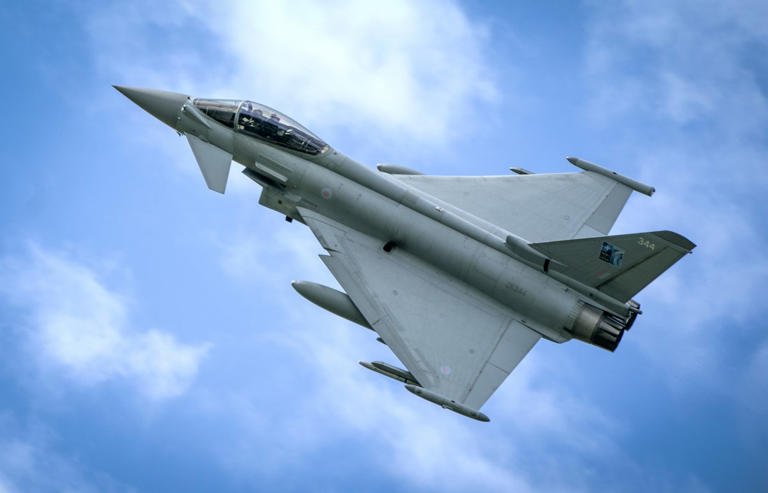In recent events, Russia has recently chosen India over China to develop non-nuclear ships for “cutting-edge” icebreakers. This initiative comes from Russia’s aim to build its Northern Sea Route (NSR) and navigate the challenges posed by Western sanctions. Although Russia has strong relations with India, this decision has raised numerous questions based on this alliance. Russia Picks India over China for Icebreaker Ships: Why?
This alliance strengthens Russia-India relations and makes India an active state participating in Arctic affairs. In attempts at maritime coorperation, India is in touch with two shipbuilders- one owned by the state and one private. This is to construct four non-nuclear icebreaker ships valued at over Rs 6,000 crores ($750 million).
According to Russian Minister Alexey Chekunkov, in November 2023, Russia revealed the proposal from India to work on this project together. India will be working in support of the Russian Nuclear energy company ROSATOM, as it looks for favorable shipyards in India. This will be done in light of the sanctions imposed on Russia by the United States. The possible reasons for this collaboration are explained as follows:
1. Geopolitical Considerations:
Alignment with India: Russia sees India as a country that is more reliable and trustworthy than China. With the historical strengths of the countries, India and Russia have developed good relations in recent years. Russia and India are cooperating on matters like defense, trade, and energy. India is a member of BRICS, Brazil, Russia, India, China, and South Africa along with the QUAD Quadrilateral Security Dialogue. quad has seen the counterbalance of the increased influence of China in the Pacific region. Hence, Russia holds civil relations with India and has chosen India for the work.
Concerns about China: Russia might have some concerns about the increasing influence of China in the Arctic region. China already has a significant hold in the Pacific region. Russia might feel that China will exploit the natural resources in the region. This will counterbalance the power in the hands of China. Hence, with the cooperation of India a country with similar ideologies to Russia, Russia aims at gaining control of the Arctic region.
2. Technological Capabilities:
India’s Shipbuilding Expertise: India has a long experience in shipbuilding and has exceeded and expanded it in recent years. India is more capable of this work as compared to China in Russia’s view. India has shipyards to build huge vessels and complex designs like Cochin Shipyard, the Mazagon Dock Shipbuilders, and the Garden Reach Shipbuilders & Engineers. The state is also investing in advanced technology for the same which includes robotics and automation. The work of building such a vast and complex icebreaker ship has to be done by an experienced workforce for which India seems to be the perfect fit.
Specific Requirements: Russia needs specific requirements for building the icebreaker ships. The ships have to function in the harshest climates in the Arctic. India is better fitted to meet those expectations as India has made nuclear-powered submarines and might have the expertise needed for the work. Whereas China might not meet the expectations as well as India will. When India can build nuclear-powered submarines, non-nuclear ships should be easier to build.
3. Economic Factors: Cost and Efficiency:
Cost and efficiency: India’s shipbuilding industry may offer a more competitive cost structure or be more efficient in delivering the project compared to China. India’s shipbuilding industry is relatively young and it may be more willing to offer competitive prices to attract business. India also has a lower labor cost than China, which could make it more attractive to foreign shipbuilders.
Trade Relations: Russia may have existing trade relations or economic incentives for partnering with India. Russia and India have been strengthening their economic ties in recent years. India is a major market for Russian exports, and Russia is a major source of arms for India. The two countries have also been cooperating on several energy projects.
Despite the limited reasons for Russia’s decision, the interconnected factors are sufficient for ensuring a successful future project.
4. India’s growing economic importance:
India, the world’s fifth-largest economy, is projected to ascend to the third-largest position by 2030Russia may see India as a more important market for its products and services than China. India has strong relations with powerful states. With effective leadership in the past years, India’s economy has flourished well and GDP has risen significantly. India’s hosting of the G20 Summit has garnered international recognition.
5. India’s democratic values:
India is a democracy, while China is an authoritarian regime. Russia may be more comfortable working with a democratic country like India. Russia is a democratic nation, their values and ideologies match India’s. With the strong ties supporting the decision, this reason also becomes one of the key reasons for this alliance of the nations.



